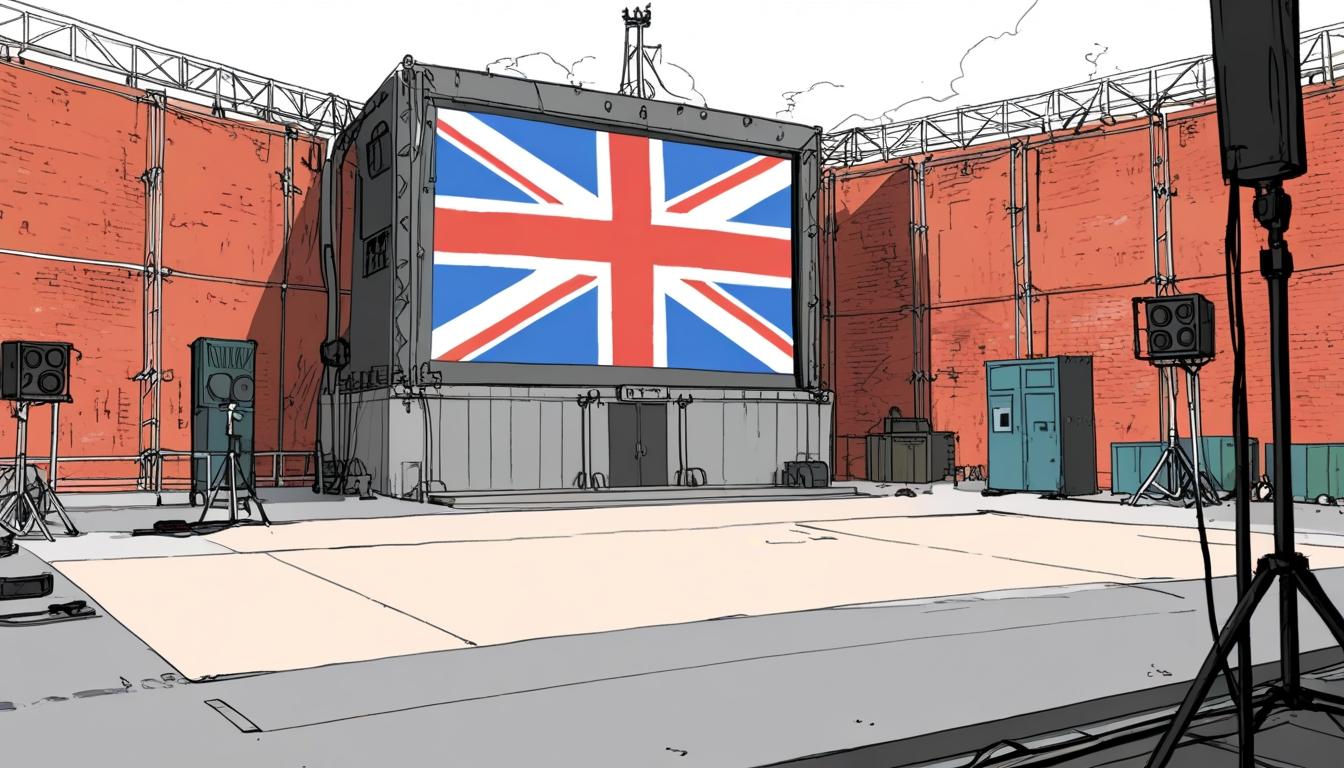The announcement of proposed tariffs on foreign-produced films by President Donald Trump has sent ripples of concern through the UK film industry, which has flourished in recent years as a significant hub for international production. Trump’s claim that “Hollywood is being destroyed” underlines a broader narrative aimed at revitalising American cinema, yet the implications for the UK's creative sector are profound and potentially devastating.
Britain benefits significantly from its film infrastructure, with large studios like Leavesden and Pinewood nurturing blockbuster films, including recent Marvel stagings. These facilities have expanded dramatically since 2019, doubling their available stage space to cater to a booming demand for filming locations. However, with Trump's threat of imposing a staggering 100% tariff on foreign films, industry leaders warn that the UK sector could face "a knock-out blow." Prominent figures, including Brian Cox from the hit TV series "Succession," have labelled the tariffs as an “absolute disaster” for British filmmaking.
The rationale behind Trump’s proposal lies in a perceived loss of American film production, which, according to some reports, dropped by 28% from 2021 to 2024. However, the globalisation of cinema complicates this issue. As film-making relies increasingly on international locations and talent, determining a film's nationality becomes convoluted. Moreover, the U.S. currently enjoys a striking $15.3 billion trade surplus in film and TV, underscoring the risks associated with such isolationist policies. Retaliatory tariffs from other nations could easily undermine the very American studios they aim to protect.
As industry analysts have noted, the potential consequences extend far beyond the realm of Hollywood. If the tariffs are enacted, there are fears that production costs would spike not just for foreign films, but also for U.S. studios that frequently rely on international partnerships. Such an environment would place immense strain on the nearly 200,000 workers in the UK’s film and television sector. The risk of freelancers—who form the backbone of the creative community—losing their livelihoods is high. As one chief executive predicted, this would leave many jobless.
In the broader context, the film sector represents a vital part of the UK's cultural identity and soft power. With more than £1.36 billion generated annually, and over 195,000 jobs at stake, voices from the industry are calling for urgent action. Philippa Childs, head of the creative industries union Bectu, emphasised that the film industry is a matter of essential national economic interest. The fear is that smaller, independent films—critical for the diversity of storytelling—may never get made if large productions dry up.
In response to the looming threat, UK industry leaders have been urged to devise strategies to bolster homegrown production capabilities and ensure that British storytelling remains vibrant. The recent introduction of tax reliefs, including the Independent Film Tax Credit providing financial incentives for modestly budgeted productions, signifies a proactive approach to fortify the sector against external shocks. The Government's commitment to the creative industries is steadfast, with cultural exports vital to the national economy.
While Trump’s administration seeks to position the U.S. film industry competitively, the reality is that the Hollywood ecosystem depends heavily on global partnerships. A retreat from global cooperation could lead to reduced film production overall, a scenario that flies in the face of Trump’s intentions. As concerns about market stability mount, both sides of the Atlantic grapple with the complex interplay between protectionism and the realities of a worldwide entertainment landscape.
Ultimately, the uncertainty surrounding these tariffs draws stark attention to the fragility of international film collaborations and raises the question of whether unilateral action can truly rejuvenate an industry so intricately woven with global threads. To preserve their interests, the British film sector must not only adapt but also advocate vigorously for a framework that champions creative collaboration over isolationism.
As this situation unfolds, the hope is for a swift resolution that acknowledges the interdependence of the global film industry, allowing it to continue thriving while incorporating protective measures that support both American and British filmmaking ambitions.
Reference Map
- Paragraph 1
- Paragraph 2
- Paragraph 3
- Paragraph 4
- Paragraph 5
- Paragraph 6
- Paragraph 7
Source: Noah Wire Services
